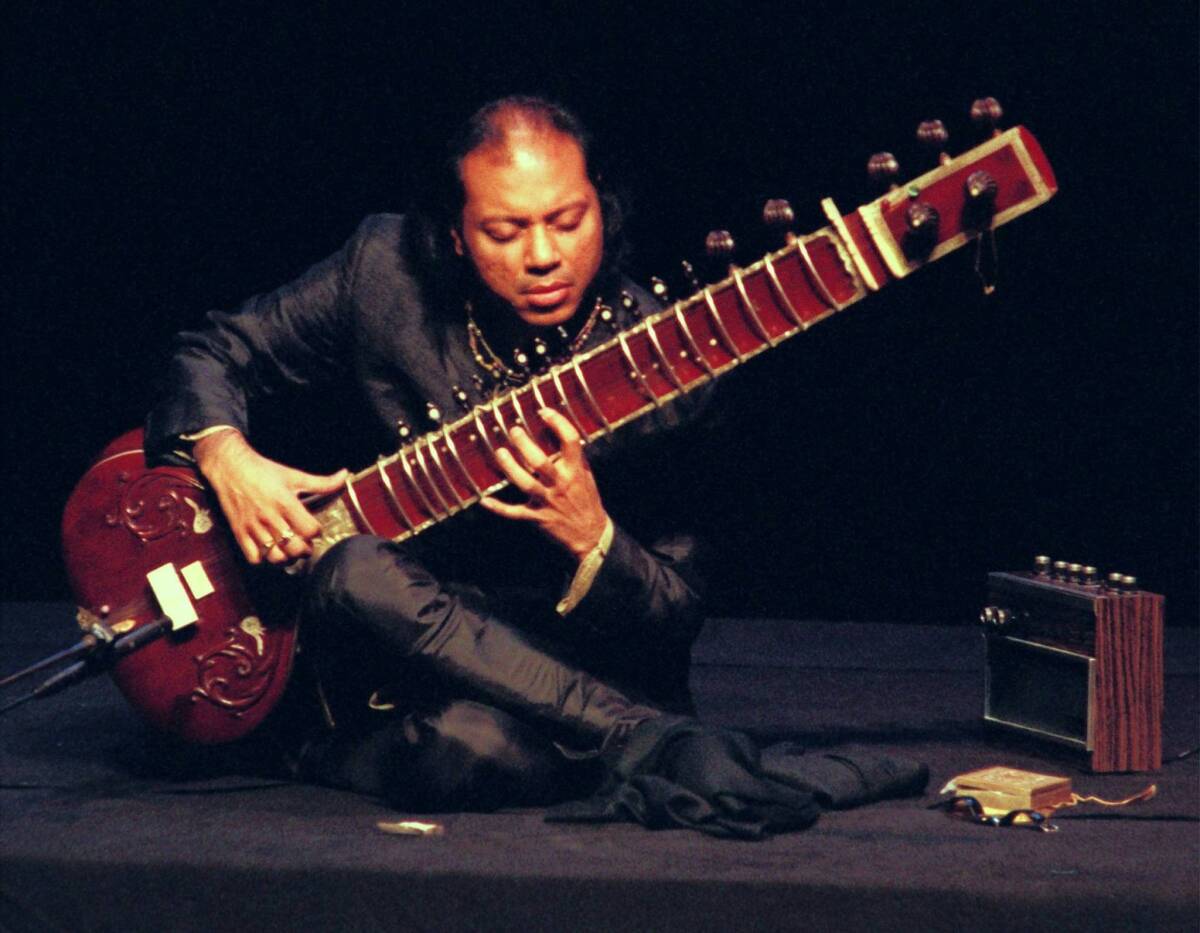Musical beauty connected by strings

- Share via
The guitar is the world’s most popular instrument and that’s not about to change. It’s an instrument that does it all. So let Eric Clapton wail for as long as he’s agile. Let Milos Karadaglic, the young Montenegrin classical guitar star, grow and thrive.
But while the guitar’s ubiquity is hardly threatened, its many cousins — the mandolin and banjo, as well as strummed and plucked instruments from a variety of Asian cultures — have lately been emboldened to step out onto a larger stage.
Among the bestselling recordings on the U.S. classical and crossover charts are those of mandolinist Chris Thile, who plays Bach, and banjo phenomenon Béla Fleck, who has written a concerto for his instrument. Los Angeles-based sitarist Nishat Khan had his first concerto, “The Gate of the Moon,” premiered at the London Proms this summer. Wu Man has become the first international star of her traditional Chinese lute, the pipa; she is a mainstay of Yo-Yo Ma’s Silk Road Ensemble, which has a new disc. And it looks as if Van-Anh Vanessa Vo, who has just recorded with the Kronos Quartet, might do something big for the spine-tingling one-string Vietnamese dan bau.
PHOTOS: Arts and culture in pictures by The Times
Classical music has, of course, always thrived on new instruments and new sounds. Thile’s new Nonesuch disc is the first volume of his mandolin transcription of Bach’s Partitas and Sonatas for solo violin, and given that the mandolin evolved from the lute in Bach’s time, the instrument is not foreign to Baroque music. Plus Bach was, himself, a serial transcriber who adapted both his pieces and those of other composers for whatever instruments were at hand.
Even though the violin is a sustained bowed instrument, and the mandolin a plucked one without lasting resonance, these transcriptions change surprisingly little. What makes them so entrancing is simply the summer-fruit freshness of the mandolin’s sound and Thile’s musicianship. He is an unpretentious modern player who hones into a melody’s natural eloquence and who finds the snap in Bach’s rhythms. Most refreshing of all, though, is that his virtuosity is of the aw-shucks variety. For all his sophistication, Bach was an avid populist, and this is Bach’s Bach, which means Bach for all.
The task of creating new works in Western classical genres for outsider instruments presents a more daunting challenge. Both Fleck and Khan are compelling players, but both also fall into the same trap of trying too hard to get along, of finding common ground.
FALL ARTS PREVIEW: Music, Art and theater for the season
Khan’s concerto, which was broadcast on the BBC, and Fleck’s, which has been recorded on Mercury Classics with the Nashville Symphony Orchestra under Giancarlo Guerrero, are long and discursive. And in both cases the principal interest lies in the solo part rather than in portentous or Impressionist orchestral writing. A companion piece on Fleck’s disc — “Night Flight Over Water” for banjo and the string quartet Brooklyn Rider — is freer, more individual and, best of all, more about the banjo.
As an ensemble of strong musical personalities from different cultures, the Silk Road’s problem is not of smoothing over sonic differences but over-enthusiastically embracing them. Their shows and recordings can sometimes seem like variety shows, moving from one tradition to the next.
There is something of that in “A Playlist Without Borders,” which Sony will release Tuesday, but not on the best pieces — jazz pianist Vijay Iyer’s smorgasbord “Playlist for an Extreme Occasion” and Wu Man’s severely beautiful “Night Thoughts.” Man seasons her pipa with Japanese flute and Korean percussion as though they were robust instrumental spices whose purpose is to bring out the pipa flavors. The result is not compromise but deep appreciation, the most effective form of diplomacy.
PHOTOS: Iconic rock guitars and their owners
Vo’s “Three Mountain Pass,” which includes her music and traditional Vietnamese pieces played on a number of Vietnamese instruments, is released on Innova, a nonprofit American composers’ label. This interestingly begs the question of what is American music, especially since a knockout on the disc is her transcription of French composer Erik Satie’s “Gnossienne No. 3.”
She plays the melody of the solo piano score on the monochrome dan bau and the right-hand accompaniment on the dan Tranh, a 16-string zither. The result is as excellent a Vietnamese French fusion as the food and coffee found in Hanoi.
A versatile instrumentalist, Vo is percussionist and chanter on the track in which she is joined by the Kronos, the string quartet eerily evoking the sounds of dan bau. When Vo’s voice intersects with the dan bau in the traditional pieces, though, you sometimes are intriguingly unsure what is what.
Yes, the guitar can do everything. But a one-string dan bau can, in its own way, gently weep as well. And wail. This CD is a sensation.
More to Read
The biggest entertainment stories
Get our big stories about Hollywood, film, television, music, arts, culture and more right in your inbox as soon as they publish.
You may occasionally receive promotional content from the Los Angeles Times.











